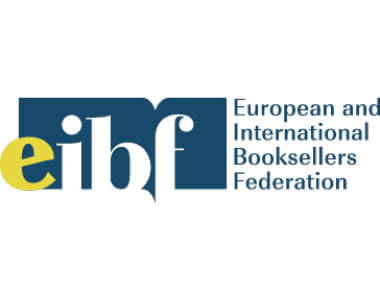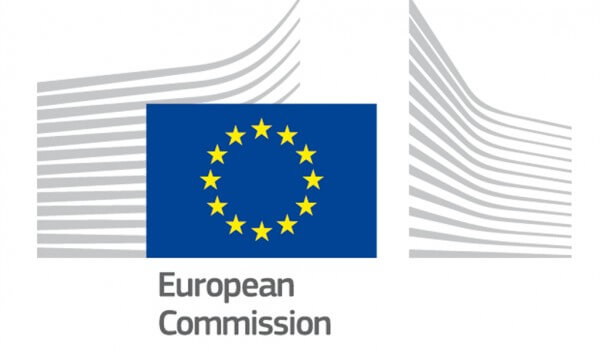Manifest für die Europawahlen 2014
Bücher verbreiten Ideen, nähren den Geist und lassen Meinungsfreiheit Realität werden. Die Bürger Europas müssen Zugang zu Büchern haben, um die demokratischen Werte Europas, die dem Integrationsprozess zugrunde liegen, verstehen zu können. Bücher ermöglichen uns Bürgern, am wirtschaftlichen, sozialen, kulturellen und politischen Leben teilzuhaben. Das gilt insbesondere in unserer heutigen Wissensgesellschaft, die erhöhte Lesekompetenz verlangt.
Die europäische Buchbranche: Autoren – the European Writer’s Council (EWC), Verleger – the Federation of European Publishers (FEP) und Buchhändler – the European Booksellers Federation (EBF) sind wichtige Garanten für kulturelle Vielfalt in Europa. EWC vertritt 150.000 Buchautorinnen und -autoren, die in allen literarischen Gattungen, in über 40 Sprachen schreiben. Mehrere hunderttausend Personen arbeiten in Verlagen und Buchhandlungen. Das Buch ist darüber hinaus wirtschaftlich gesehen das wichtigste Kulturgut, mit einem Umsatz der Verlage von über 22,5 Milliarden Euro im Jahr 2012 und mit einer Produktion von über 535.000 Neuerscheinungen pro Jahr. Die Kataloge der europäischen Verleger weisen eine Vielfalt von ca. 9 Millionen Titeln auf (davon mehr als 2 Millionen Titel in digitaler Form. [FEP-Statistik 2012]
EWC, FEP und EBF einigen sich auf vier Kernforderungen:
1. Ein ausgewogenes und faires Urheberrecht, das Autoren und Lesern in gleichem Maße zugute kommt
Schutz des Geistigen Eigentums und Stärkung des Urheberrechts sind notwendig um Innovation zu fördern – damit Autoren Werke schaffen können und für ihre Arbeit gerecht entlohnt werden, damit Verleger investieren und damit Buchhändler dem Leser das fertige Buch in Buchhandlungen anbieten können.
2. Ein Steuersystem, das die größtmögliche Verbreitung von Büchern fördert
Ein Buch ist ein Buch, unabhängig von seinem Format. Wir fordern den niedrigsten möglichen Mehrwertsteuersatz auf alle Bücher, unabhängig von deren Format, Zugangs- und Trägermedium.
3. Fairer Wettbewerb im Internet unter Gewährleistung von Interoperabilität und Förderung legaler Angebote
Wir fordern gleiche Bedingungen für alle Marktteilnehmer im Interesse eines vielfältigeren Angebots für die Leser in Europa. Vollständige Interoperabilität muss gewährleistet werden, damit Verbraucher jedes E-Book auf jedem Endgerät lesen können und damit sie die Freiheit haben, E-Books bei dem Anbieter ihrer Wahl zu kaufen, so dass keine Abhängigkeit von nur einem Anbieter entsteht.
4. Ein Bildungsangebot, das qualitativ hochwertigen und professionell erstellten Bildungsmedien Rechnung trägt
Bei Reformen im Bildungswesen in Europa rufen wir die Verantwortlichen auf, der wichtigen Rolle von professionell erstellten Bildungsmedien Rechnung zu tragen, da diese Qualität garantieren, den Ansprüchen der Lehrenden und Lernenden entsprechen und Wahlfreiheit zulassen. EWC – http://europeanwriterscouncil.eu/ EBF – http://eibf-booksellers.org/ FEE – http://fep-fee.eu/
I. Urheberrecht – Wir fordern ein faires Urheberrecht mit fairen Voraussetzungen für alle.
1. Innovation fördern durch Stärkung des Urheberrechts, so dass Autoren Werke schaffen können und für ihre Arbeit gerecht entlohnt werden, damit Verleger investieren und damit Buchhändler dem Leser das fertige Buch in Buchhandlungen anbieten können.
2. Überprüfbare praktische Lösungen im Bereich von Text and Data Mining voranbringen, damit den Fragen und Problemen, die die Auswertung von digitalen Datensätzen mit sich bringen, bestmöglich begegnet werden kann.
3. Anerkennen, dass bestehendes Urheberrecht ausreichend Flexibilität bietet, um Bedürfnissen der digitalen Welt gerecht zu werden
4. Kreativität fördern und gewährleisten, dass Autoren faire Vertragsbedingungen haben, unabhängig davon, ob ihre Bücher in gedruckter oder digitaler Form erscheinen.
II. Besteuerung – Ein Buch ist ein Buch, unabhängig von seinem Format. Wir fordern den niedrigsten möglichen Mehrwertsteuersatz für alle Bücher, unabhängig von deren Format, Zugangs- und Trägermedium.
5. Bücher sind Träger und Vermittler von Bildung und Kultur. Multikulturalität und Lernen sollten durch die Anwendung der niedrigstmöglichen Mehrwertsteuersätze befördert werden.
6. Steuerliche Ungleichbehandlung, die am Ende eine kleinere Leserschaft zur Folge hat, sollte bei Büchern, ob print oder digital, ob online oder im Laden gekauft, verhindert werden.
7. Eine höhere und ungleiche Mehrwertsteuer auf digitale Publikationen behindert die Weiterentwicklung der Wissens- und Informationsgesellschaft in Europa, gefährdet die Fortentwicklung des E-Commerce und des digitalen Binnenmarktes und erschwert die Digitalisierung des europäischen Kulturerbes. Es ist Zeit zu handeln: Reduzierten Mehrwertsteuersatz oder Nullsatz für alle Buch-Formate ermöglichen!
III. Fairer Wettbewerb – Wir fordern gleiche Bedingungen für alle Marktteilnehmer im Interesse eines vielfältigeren Angebots für die Leser in Europa, da wir befürchten, dass diesem Ziel durch das Verhalten einiger dominanter Marktteilnehmer im Einzelhandel entgegengewirkt wird.
8. Auffindbarkeit von Büchern durch Suchmaschinen, Wahl der Händler und Interoperabilität sind drei zentrale Voraussetzungen für ein vielfältiges Angebot und für Wettbewerb. Faire Marktbedingungen im Buchsektor mit gleichen Voraussetzungen für alle Marktteilnehmer sollten gefordert und durchgesetzt werden, damit Autoren und Verleger auch in Zukunft lehrreiche, informative und unterhaltsame Bücher schaffen und verlegen können.
9. Entwicklungen, die den E-Book Markt für Leser in Europa durch leicht zugängliche digitale Inhalte noch attraktiver machen, brauchen Unterstützung – neben den Inhalten betrifft das auch Ökosysteme, in denen E-Books angeboten werden (Endgeräte, Lesesoftware und Plattformen)
10. Treten Sie in Kontakt mit Autoren, Buchhändlern und Verlegern, die sehr aktiv sind in der Weiterentwicklung von Geschäftsmodellen für einen einfachen Zugang zu digitalen Inhalten und die in täglichem Kontakt mit Lesern und Verbrauchern stehen.
11. Unterstützen Sie Initiativen, die Interoperabilität fördern (wie z.B. die Entwicklung und Anwendung des E-Pub Standards) und unterstützen Sie die Bevorzugung interoperabler Systeme im Rahmen öffentlicher Beschaffungsvorhaben.
IV. Bildungsangebote – Bei Reformen im Bildungswesen in Europa rufen wir die Verantwortlichen auf, der wichtigen Rolle von professionell erstellten Bildungsmedien Rechnung zu tragen, die Qualität garantieren, den Ansprüchen der Lehrenden und Lernenden entsprechen und Wahlfreiheit zulassen.
12. Schulbuchautoren schützen und dafür sorgen, dass sie ihre Verträge weiterhin selbst aushandeln
können und für ihre Arbeit angemessen vergütet werden, unabhängig davon, auf welchem Wege ihre Werke Verbreitung finden.
13. Auswahlmöglichkeiten für Lehrer und Bildungseinrichtungen weiterhin gewährleisten: Bildungsmaterialien müssen von Experten erstellt und in entsprechenden Verlagen
geprüft werden.
14. Bildungsreformen in Europa dürfen nicht ohne die Einbeziehung wichtiger Akteure, wie Schulbuchautoren und -verleger, vollzogen werden.
15. Der verstärkte Einsatz von Informations- und Kommunikationstechnologien sowie freien Bildungsmaterialien (OER) sollte in erster Linie dem Lernenden zu Gute kommen und Bildung verbessern. Bildungsetats müssen erhöht werden und nicht professionell erstellte Lehrmittel vom Markt verdrängt werden – mit dem eigentlichen Bestreben, öffentliche Mittel einzusparen.
16. Den Wert des Schutzes geistiger Eigentumsrechte anerkennen und sich der Gefahren bewusst werden, die sich aus unfairem Wettbewerb durch öffentlich finanzierte Bildungsmedien und Staatsmonopole ergeben.







